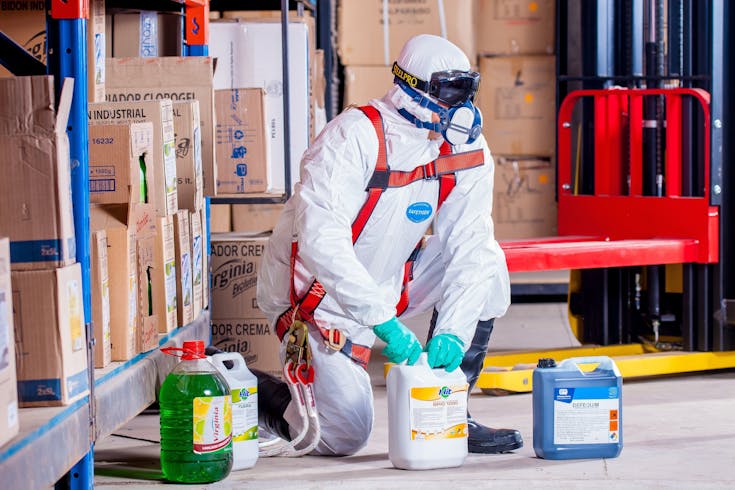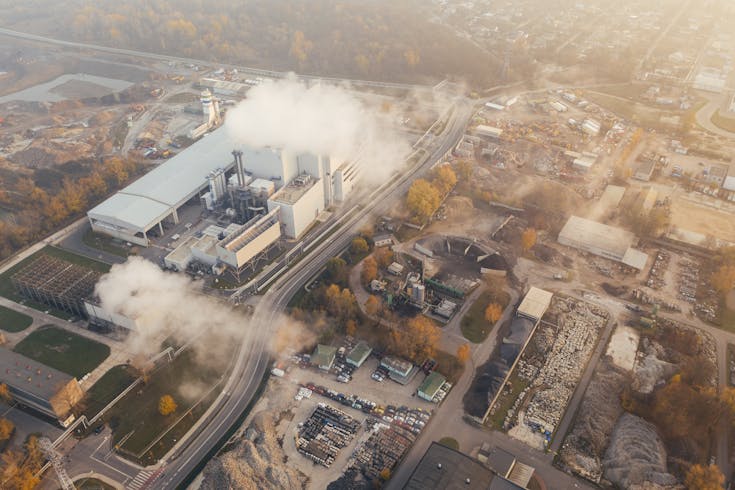The chemical industry in Indonesia stands as a vital pillar of the nation’s economy, driving growth, innovation, and employment. From fertilizers to petrochemicals, this sector is poised for rapid development, backed by governmental support and a growing domestic market.
This article explores Indonesia’s chemical industry outlook, business opportunities, regulations, key players, and steps to establish a chemical business in the country.
Also read: Major Industries in Indonesia (Based on Contribution to GDP)
Indonesia Chemical Industry Outlook


The chemical industry contributes significantly to Indonesia’s GDP and exports. In 2022, it accounted for 10.5% of GDP, with exports valued at $40 billion. This diverse sector encompasses products such as fertilizers, plastics, paints, and pharmaceuticals, supporting other industries like agriculture, textiles, and manufacturing.
Indonesia aims to reduce dependency on imports and position itself as Southeast Asia’s largest petrochemical base by 2027. Major projects include the development of naphtha crackers in Cilegon and industrial parks in North Kalimantan. With an expected annual growth rate of 5.5% over the next five years, Indonesia’s chemical industry is set to thrive.
Key trends shaping the sector include:
- Rising Fertilizer Demand: Essential for agriculture, the fertilizer market is projected to grow at a CAGR of 4.6% by 2026.
- Petrochemical Integration: Investments in integrated facilities like Chandra Asri’s naphtha cracker and Lotte Chemical’s $3.9 billion project are expanding domestic production.
- Industrial Parks: The Tanah Kuning Kalimantan Industrial Park Indonesia (KIPI) is a cornerstone of the government’s industrial strategy.
- Export Market Expansion: Major export destinations include China, Japan, and the United States.
Chemical Business Opportunities in Indonesia
Indonesia’s chemical industry offers diverse opportunities:
- Agriculture: With over 270 million people and a thriving agricultural sector, fertilizers and pesticides are in high demand.
- Petrochemicals: Investments in refining and cracker facilities present opportunities for companies in ethylene, polyethylene, and polypropylene production.
- Textiles: The textile industry, employing 3.7 million workers, relies on imported chemicals like caustic soda for dyeing and scouring.
- Exports: Chemicals such as acyclic hydrocarbons and organo-sulfur compounds dominate Indonesia’s export portfolio.
Government incentives, such as tax breaks and subsidies, and infrastructure investments, including new ports and roads, further enhance the appeal of investing in this sector.
Also read: Indonesia’s Positive Investment List: Opportunities for Investors
Indonesia Chemical Business Regulation
Establishing a chemical business in Indonesia requires compliance with several regulations:
- Law (UU) No. 9 of 2008 about Use of Chemicals and Prohibition of the Use of Chemicals as Chemical Weapons: Regulates the use of chemicals in Indonesia, including prohibitions on chemicals that can be misused as chemical weapons. It includes provisions on classification and permits for chemical use.
- Government Regulation Number 187 of 1961 on the Establishment of State Chemical Industry Companies: Sets provisions for establishing state-owned enterprises in the chemical industry sector and governs cooperation and supervision of these companies.
- Minister of Industry Regulation Number 8 of 2024: Regulates the issuance of technical considerations and import recommendations for specific upstream chemical commodities, as well as the procedures companies must follow for imports.
Additionally, environmental regulations are becoming stricter, emphasizing sustainable practices.
Examples of Chemical Companies in Indonesia


Several companies dominate Indonesia’s chemical industry:
- Chandra Asri Petrochemical: Operates the country’s largest naphtha cracker in Cilegon.
- Pertamina: The state-owned enterprise is expanding its downstream operations to boost petrochemical output.
- Lotte Chemical: Investing in a $3.9 billion naphtha cracker and downstream facilities in Merak.
- Tongkun Petrochemical: Developing a $8.6 billion complex in North Kalimantan, pending Chinese government approval.
These companies play pivotal roles in reducing import dependency and fostering local production.
Also read: Top Foreign Investment Sectors in Indonesia
How to Start a Chemical Company in Indonesia
Starting a chemical company in Indonesia involves several steps:
- Market Research: Identify target markets and products, such as fertilizers, petrochemicals, or industrial chemicals.
- Legal Compliance: Obtain necessary permits, including a B2 recommendation for hazardous chemicals.
- Strategic Location: Consider industrial parks like KIPI for access to infrastructure and resources.
- Partnerships: Collaborate with local and international suppliers for competitive pricing and quality assurance.
- Sustainability: Implement environmentally friendly practices to align with regulatory requirements and market trends.
Indonesia’s chemical industry is a cornerstone of the nation’s economy, offering vast opportunities for investors and businesses. With strong government support, increasing domestic demand, and strategic projects underway, the sector is poised for robust growth.
Whether you are an entrepreneur, investor, or corporation, the Indonesian chemical industry holds immense potential. Stay informed, comply with regulations, and leverage emerging opportunities to succeed in this dynamic market.
If you are considering starting a chemical business in Indonesia, there are a number of resources and support services available to help you get started.
InvestinAsia is among the companies that specialize in aiding you with Indonesia company registration. We boast a team of seasoned experts who can guide you throughout the process of:
- Foreign company / PMA registration in Indonesia
- Indonesia representative office registration
- PT PMDN Set Up
- Virtual office setup in Indonesia
- Business registration number in Indonesia
- Indonesian Business Licenses
- Indonesia Trademark Registration
If you are interested in starting a business in Indonesia, you can start by contacting us for FREE consultation.
Sources:
- Intimedia
- Chamachem
- GB Reports
- The Audit Board of the Republic of Indonesia




